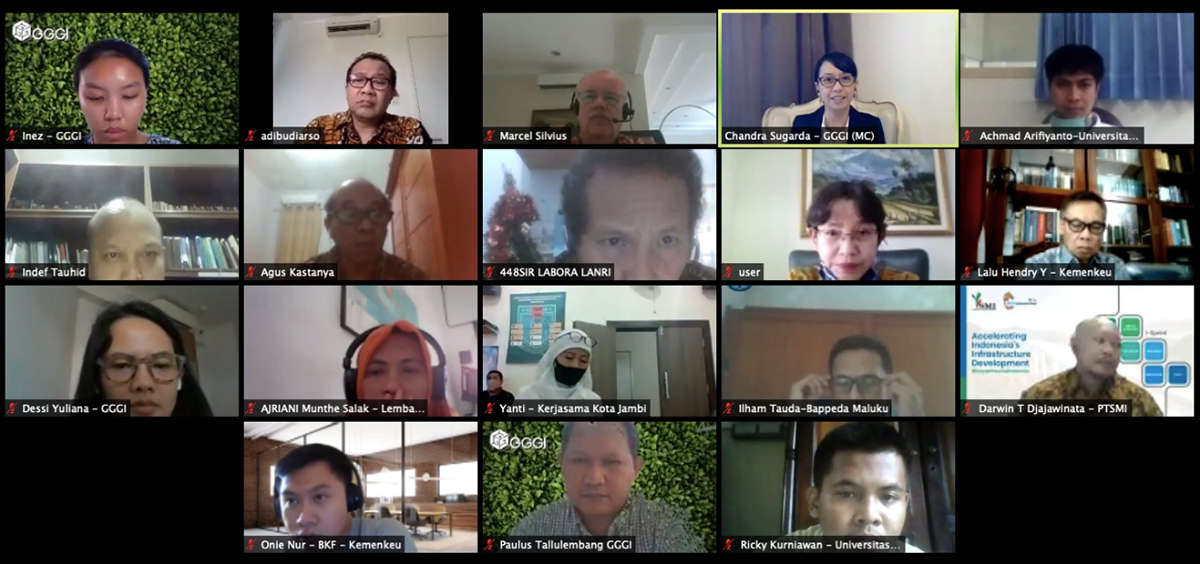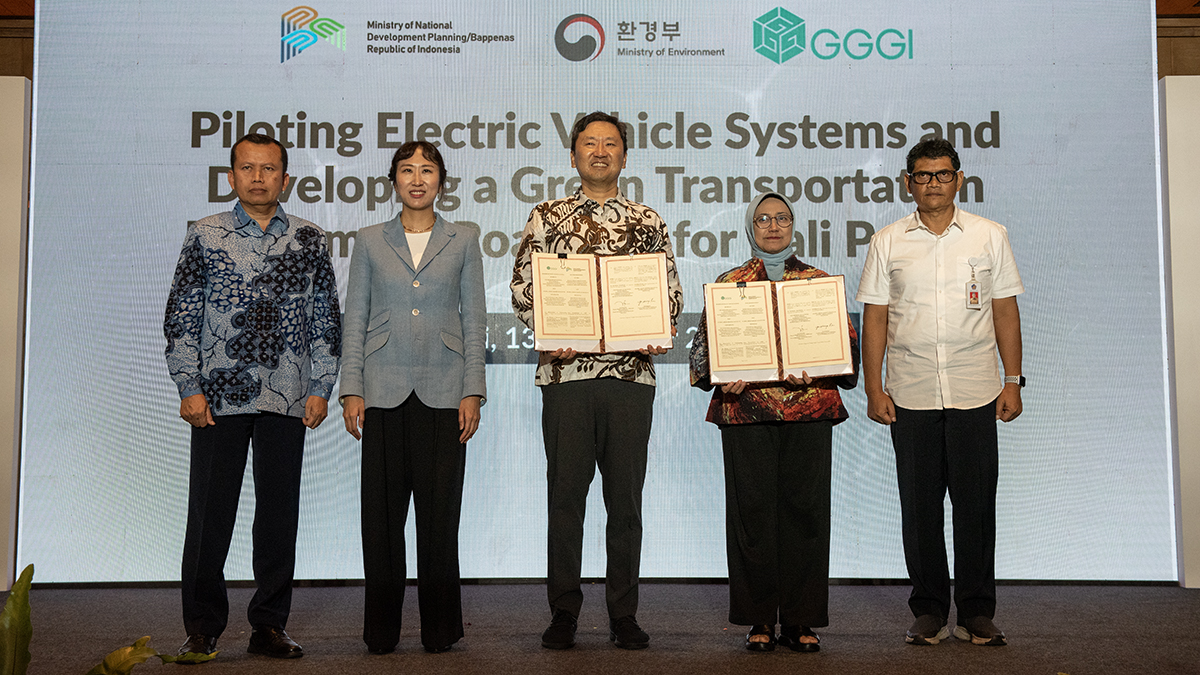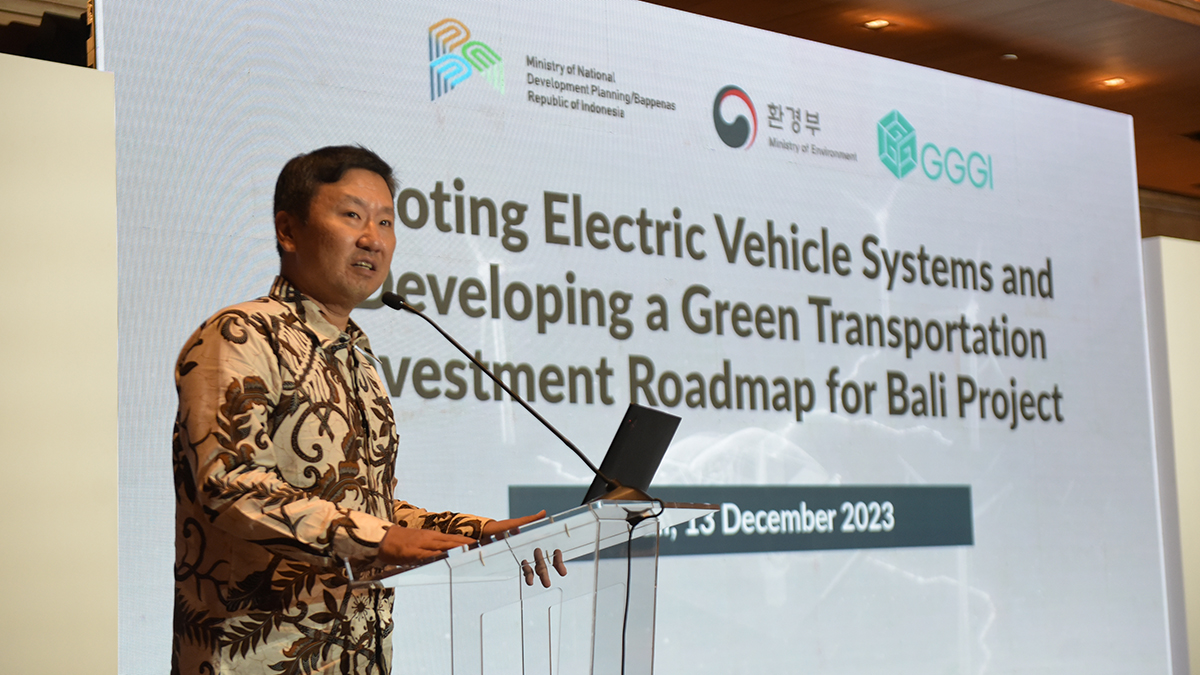The GCF’s Contribution to Climate Change Funding in Indonesia and Future Plans
The Fiscal Policy Agency of The Ministry of Finance as the National Designated Authority (NDA) for Indonesia’s Green Climate Fund, held a webinar with the theme of “Accessing the Green Climate Fund in Indonesia” on June 24, 2020. Representatives from Indonesia’s Environmental Fund Agency (BPDLH), PT Sarana Multi Infrastruktur (PT. SMI), the Green Climate Fund (GCF), and Global Green Growth Institute (GGGI) participated as panelists. Indonesia’s Country Programme Document for GCF and NDA’s website were officiated in the event.
To make sure that the submitted GCF projects are in accordance to Indonesia’s climate change policies and priorities, the GCF put forward the ‘country ownership’ principal during the webinar. Moreover, to support its coherence to the GCF’s area sector, NDA issued the Country Programme Document that has become a guide to project proposers and Accredited Entities in planning potential projects to be funded by the GCF.
According to the Nationally Determined Contribution (NDC), the National Action Plan for Greenhouse Gas, and the National Action Plan for Climate Change Adaptation, Country Programme Documents have potential sectors that could be developed in Indonesia, as well as the financial instruments that should be proposed in each sector.
The webinar also talked about the contribution of international funding facilities in the national finance mechanism regarding climate change. PT SMI’s Director, Darwin Djajawinata, shared PT SMI’s experiences in funding climate change projects and how it gained access in multiple international funds, like the GCF. For private sectors, PT SMI with its access to the SDG Indonesia One and the GCF could be a trusted partner in developing climate change actions in Indonesia.
Other than private sectors, regional government and local non-governmental organizations could also access the GCF’s funding, as well as supporting green projects through microfinance and green bond. Meanwhile, BPDLH has given Indonesia a bigger opportunity in accessing many international climate funding systems. In this case, the GCF could also be a potential donor to BPDLH, with accreditation process, of course. This was mentioned by Leo Park, Financial Institutions Manager from the GCF’s Private Sector Facility unit, who said his interest in working together with BPDLH. In his presentation, he touched upon one readiness program in Mongolia which has similarities with the making of BPDLH, the Mongolia Green Financing Corporation (MGFC), a national financing vehicle specifically for climate change mitigation and adaptation. MGFC uses the GCF’s preparation project facility to structure institutions, investment schemes, and initial operational agency.
The experience shared by the many organizations represented by the panelists is expected to be a guide for shareholders and other future accredited entities in the future, especially national banks or any other financial institutions, in accessing the GCF’s funding. To project proposers, Country Programme Document could also be a guide to formulate climate change project proposals to the GCF.




